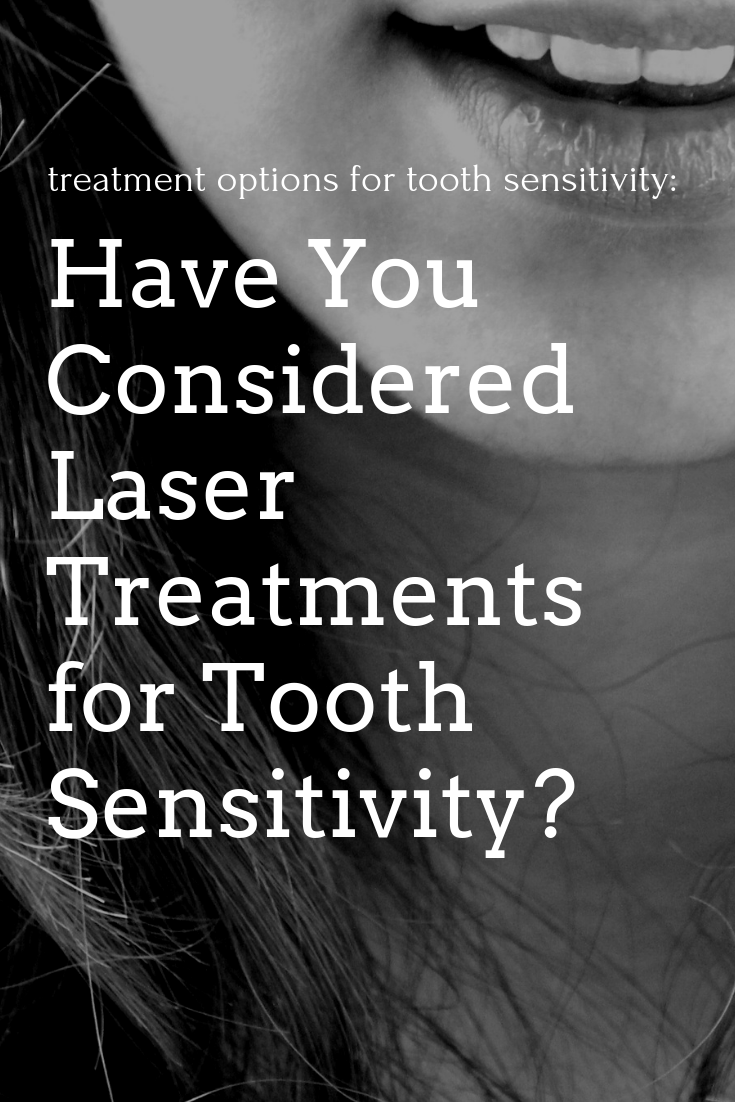
Anyone who suffers from tooth sensitivity
knows that they’ll do just about anything to help their teeth from hurting.
This is especially true if you love things that are cold like ice cream or iced
drinks; tooth sensitivity can really be painful when you have these things. I have dealt with tooth sensitivity for years. It’s been caused by some gum recession on a few areas on my upper teeth and it is not fun. I’ve even had a filling placed on one of my teeth to help with the sensitivity caused by gum recession. But after that procedure, I wondered what I could do without going to the extreme of getting a filling on a tooth that doesn’t even have a cavity. After some research I’ve found there are certain things that you can do to help your teeth not be as
sensitive. I wanted to share what I have found to hopefully help other people dealing with this issue.
What is Tooth Sensitivity?
So let’s start from the beginning. What the heck is tooth sensitivity? Tooth sensitivity is a condition where a
sharp first of pain when you expose your teeth to cold, sweet items, even air. When you experience
one of these, the pain will shoot into your tooth’s nerve endings which causes
even more pain. Through my research, I found that it is estimated that there are at least 40 million adults in
the United States that suffer from sensitivity. That’s craziness! I had no idea it was such a prevalent issue.

When a person experiences tooth
sensitivity, it is from a combination of a few different things. People usually
get sensitive teeth from worn down tooth enamel and or from exposed tooth
roots. This can be caused by simply brushing your teeth too hard or using a
bristle toothbrush that is too hard. Grinding your teeth can also cause
sensitivity. Other times the sensitivity is caused from more serious
complications such as cavities, cracked or chipped teeth, worn fillings, or gum
disease. My dentist recommended a softer tooth brush to me years ago and I have only been using soft bristles since. It has helped keep my tooth sensitivity from getting worse.

How Can I Stop Tooth Sensitivity?
If you are having issues with sensitive
teeth it’s very important that you make a dental appointment. Your dentist will
be able to diagnose the reason why your teeth are having sensitivity. There are
several different options that your dentist may recommend to help combat your
tooth sensitivity. Some of these options include a desensitizing toothpaste and
using fluoride. The enzymes in the toothpaste will help block some of the
exposed enamel reducing the amount of tooth sensitivity. Fluoride is also great
to use for strengthening your enamel. I’ve tried desensitizing toothpastes and they work, but I don’t care for them as much because they don’t leave my mouth feeling as clean. After some trial and error I found some toothpaste that don’t irritate my teeth, but leave me feeling minty fresh! Try different brands and types until you find what is best for you.
Some other more serious options include
desensitizing or bonding. This process occurs when a binding resin is applied
to exposed root surfaces to cover the root and begin healing the sensitivity.
Sometimes, a surgical approach is needed to aide sensitivity. Gum grafts maybe
an option for those who have sensitivity due to loss of gum tissue.
In the most serious cases, a root canal
maybe another, more complex option for fighting sensitivity. Your dentist will
only recommend a root canal if all other options have been exhausted and you
are still having sensitivity. In this case, there might actually be an issue
with the soft core of the tooth, or the dental pulp. Although this may seem
like an extreme procedure to do on a simple case such as sensitivity, this is
actually viewed as the most effective way to stop sensitivity all together. And if it gives you better quality of life then it might be worth it!

Laser Treatments for Sensitivity
If you cannot afford or do not have the
time for a root canal, there is one other option. Although sensitivity
toothpaste is the most common way recommended by dentists to combat
sensitivity, some dentist will also do laser treatment as a form of relief from
tooth sensitivity. I haven’t tried this option, but it is one that I am very interested in after reading about it.
When your dentist performs a laser
treatment, he will wave a laser over the portion of your tooth or section of
your gum that is experiencing the sensitivity. When the dentist puts the laser
on this section or tooth, the laser is closing off the tubules, which are
located on the route of your tooth, and are usually the cause for the hot or
cold tooth sensitivity. Most dentists consider this an inexpensive and
convenient way to stop sensitivity. The laser treatment takes just a few
minutes and will usually either eliminate the sensitivity completely, or at
least make the sensitivity go away for a few years. Usually patients experience
immediate results and there is no need for anesthesia in most cases.
Many people do not know about laser
treatments as an option to stop teeth sensitivity. I had no idea about them until reading about them online. Most laser treatments for
these cases are often covered by your insurance, too. According to various clinical
studies, laser treatments are very effective in alleviating sensitive teeth.
Laser treatments before a teeth whitening will also help the whitening process
go by faster and smoother.
The Future of Laser Treatments
It looks as if dental laser treatments
are here to stay. There are many benefits to using lasers in dentistry such as
reduced risks of bleeding and bacterial infection. With the use of lasers in some treatments, a person may not require
sutures after the treatment is over so healing will be much faster. Most of the time anesthesia is not required either.
Some dentists are even using lasers for
routine dental procedures such as cleanings. There are dental experts that believe lasers will soon replace the drill when it comes to most dental procedures. This
will allow dentist to finally have access to all of the parts of the tooth.
This may also have a lasting effect on many people who are scared to go to the
dentist because they will not have to undergo any drilling. In the past when I have had a cavity, that is my least favorite part. The sound, feeling, and smell of the drill is the worst!
If you’re looking for treatment options for tooth sensitivity in the NYC area, you may contact or visit Dr. Marc Lazare. Dr. Lazare is a celebrity dentist and a Master of The Academy of General Dentistry. His office and staff strive for aesthetically pleasing smiles for all of their patients. They are available at any time to answer any questions before or after your dental procedure. Their goal is to make you feel as comfortable as possible while you were getting your procedure completed. The office also offers we can hours to accommodate their patients busy schedules. Their patient satisfaction is their greatest reward. I actually used their website to find out a lot of my information about the use of lasers in dentistry, specifically for tooth sensitivity.

This post was written and researched in conjunction with the staff at Dr. Lazare’s office and is sponsored by them, but it is an issue I have personally dealt with for years and felt compelled to share. Thank you for reading!

